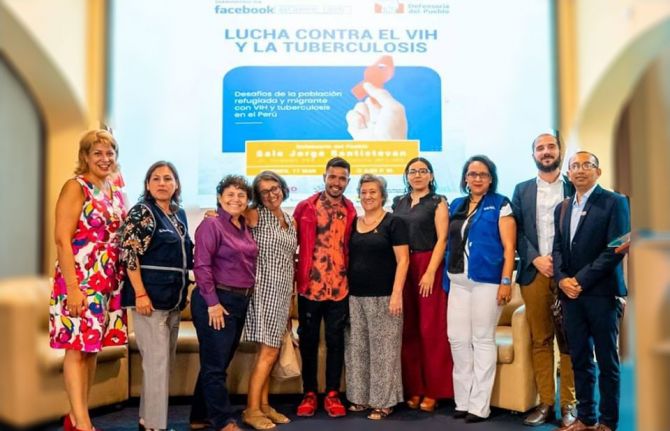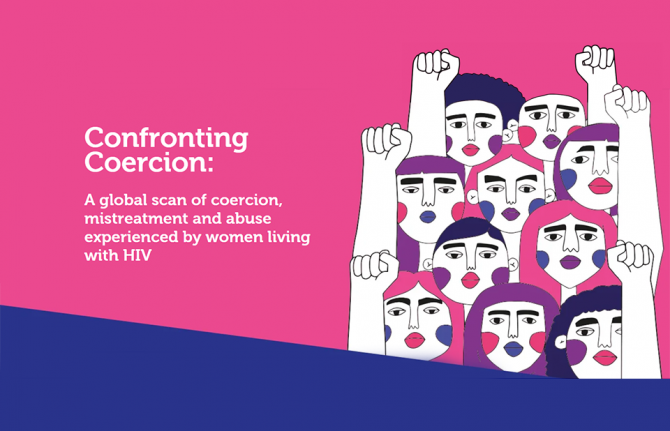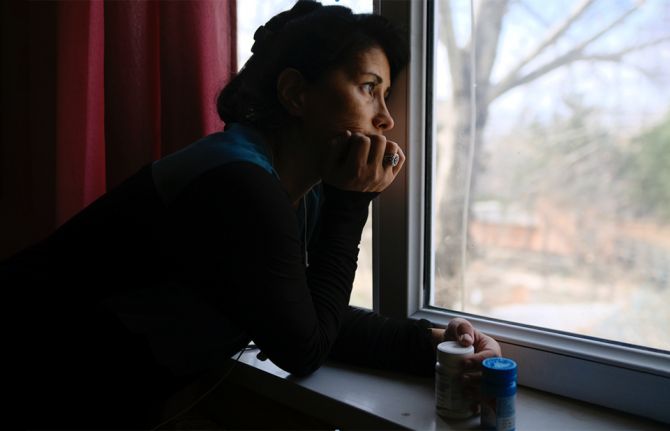
Feature Story
Harnessing the power and leadership of parliamentarians in the AIDS response
07 June 2011
07 June 2011 07 June 2011
(Left to Right): Michel Sidibé, Executive Director of UNAIDS; Anders Johnsson, Secretary General of the IPU; at Parliamentarians Meeting on June 7, 2011, at UN Headquarters, NYC.
Credit: UNAIDS/B. Hamilton
The world’s parliamentarians have a crucial role to play in an effective response to the AIDS epidemic. They provide leadership, help set the national agenda, formulate laws and authorize AIDS spending. How this influence can be harnessed in the challenge to HIV was the central theme of an important meeting for parliamentarians held on the eve of the UN High Level Meeting on AIDS in New York.
Co-organized by the Inter-Parliamentary Union (IPU), the United Nations Development Programme (UNDP) and UNAIDS, the forum was attended by a number of members of parliament and several ministers taking part in the High Level Meeting.
It explored a range of issues, including the impact of law on HIV interventions and how legislation can be used to reinforce, rather than hinder, public health and development responses. These were seen through the prism of three key themes: universal access to HIV prevention, treatment, care and support; protection and promotion of rights of people living with HIV, and those most vulnerable to HIV, and discriminatory and punitive laws which are compromising AIDS investments.
The gathering also examined the underlying politics of the new global consensus on HIV and looked at the main outcomes likely to emerge from the High Level Meeting. The emphasis throughout was firmly on concrete and practical action and translating AIDS commitments into reality, using the full range of parliamentarians’ authority in the spheres of leadership, budget allocation and law making and reform.
Nonviolence is the only way to create social change. And you are the ones who have been chosen to lead that change
UNAIDS Executive Director, Michel Sidibé
In opening remarks Anders B. Johnsson, IPU Secretary General, said the role of members of parliament in the global response to HIV could not be underestimated: “We have entered a new era in the AIDS response where parliamentarians need to work in strategic partnership with UNAIDS and to pay greater attention to shared responsibility and mutual accountability.”
UNAIDS Executive Director, Michel Sidibé made a powerful call for leadership from the parliamentarians: “Violence is a cancer, a gangrene growing inside of us. We may not see it but it is there. It undermines our foundation. It undermines what our ancestors wanted for us. Nonviolence is the only way to create social change. And you are the ones who have been chosen to lead that change.”
Other participants at the meeting included Representative Jim McDermott, US Congress; Petra Bayr, member of the Austrian Parliament; Christoph Benn, the Global Fund’s Director of External Relations and Partnerships; and the Hon Michael Kirby, Judge of the High Court of Australia (retired) and Commissioner of the Global Commission on HIV and the Law.
The need for parliamentarians to effectively deploy legislation as a tool for ensuring and sustaining universal access to HIV services was reinforced by Petra Bayr and Hon. Michael Kirby who said: “In the HIV response, the law is not serving those most vulnerable – sex workers, men who have sex with men, transgender people, injecting drug users. When parliamentarians make no mention of those most vulnerable to HIV – this means that these very populations are out of the reach of essential services and condemned to death. We are suffering from a new virus, ‘Legislative Silence Virus’. We must work together to prevent the spread of this new virus—that is what the Global Commission on HIV and the Law hopes to do.”
The meeting provided a valuable opportunity for the IPU to consolidate its plan of action in the coming years; HIV is a central strand in its new draft strategy, 2012-17. The organization’s commitment to challenging AIDS is long-standing and since 2006 there has been an IPU Advisory Group on HIV/AIDS.
This group focuses on providing members of parliament with access to relevant policy expertise and skills to properly exercise their duties of lawmaking, oversight, leadership and advocacy. It pays special attention to the objective of achieving universal access to HIV prevention, treatment, care and support services, and the protection and promotion of rights as a prerequisite for meeting the Millennium Development Goal 6 targets.



